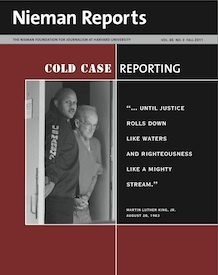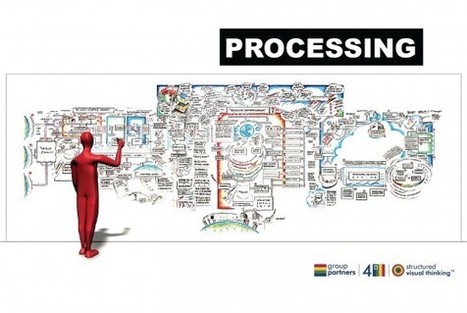I learned a great deal about infotention from Robin Good, who foresaw what he called "newsmastering" as a key skill years before it was called "curation." -- Howard
Robin Good: Among the five digital trends presently shaping the consumer experience economy, according to Macala Wright who first wrote about this on Mashable, there is one that has as its key objective the reduction of "information noise", distractions and approaches to digital communication that make it harder to grasp and understand a message or to complete a key task one is after.
It reads like there is more to information curation than people scanning feeds and selecting relevant items to write about.
From the original article I have extracted a few passages: "Calm technology refers to applications that cut down on the digital noise of high-volume data to show the user only enough information that he or she needs to complete a task.
...It refers to technologies that do not disrupt our workflow.
The whole idea is to reduce distractions to our work flow without losing functionality.
Calm technology fights against many of the principles of digital marketing: instead of screaming for attention with flashing banner ads, technologies and applications politely take a backseat to the user’s primary focus...
...
Examples of calm technology can be found in the growing popularity of social curation and discovery.
Social product discovery sites such as Lyst, Mulu.Me, Buyosphere, Svpply and Discoveredd are essentially social filters that enable their communities to curate the products that are most relevant to them.
Moreover, the rise of interest networks and the idea of following someone who has similar likes and shared interest topics are examples of the principles of calm technology driving user behavior.
Google Circles, Pinterest and Chime.In, even location apps such as Sonar, Glancee and Highlight, can all be classified under the “term interest network.”
Excellent reading. 8/10
Full article: http://fashionablymarketing.me/2012/06/digital-trends-consumer-experience-economy/ ;
Via
Robin Good
 Your new post is loading...
Your new post is loading...
 Your new post is loading...
Your new post is loading...








![The Ability To Extract and Communicate Insight from Data It's Going To Be Huge: McKinsey Quarterly [Video] | Infotention | Scoop.it](https://img.scoop.it/JhPPX2ck-2VX3w7sz-h8Gjl72eJkfbmt4t8yenImKBVvK0kTmF0xjctABnaLJIm9)






A explorar
CoCreation Tool for Design Thinking